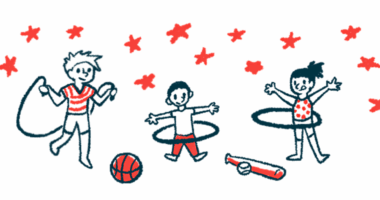Accepting limitations is a difficult part of living with chronic illness
Feeling powerless and deprived of choices can lead to depression

A recent family vacation to the beautiful island of Bohol in the Philippines was filled with unforgettable moments. We climbed steep steps to take in the mesmerizing view of the Chocolate Hills, crossed swaying twin bridges, and visited popular tourist spots like the Tarsier Sanctuary and Bohol Bee Farm. It was a vacation to cherish, as we took countless photographs and savored delicious cuisine.
But the highlight of our journey was an island-hopping adventure at Panglao, Bohol. It was a chance to see dolphins at dawn, snorkel amid colorful fish and sea turtles, and dive into the captivating world beneath the waves. It should’ve been an exhilarating experience for everyone, but for my husband, Jared, it was a bittersweet ordeal.

Alliah’s husband, Jared, guides their daughter, Cittie, to a boat during an island-hopping outing in Panglao, Bohol, in the Philippines. (Photo by Alliah Czarielle)
Jared is no ordinary swimmer. He’s adept at advanced strokes and could give competitive swimmers a run for their money. With such prowess, he had every reason to believe he could remove his life vest and explore the depths of the ocean to enjoy the vibrant marine life. However, his epilepsy, a result of a cranial bleed he experienced as a child, kept him firmly confined to his vest. Jared also has severe hemophilia.
The possibility of having a seizure still haunts him, even though they’re now milder and mostly controlled by medication. The danger of seizures lurks around every corner of Jared’s life. From simple activities like cooking and traveling to operating vehicles or swimming, everything comes with a caution label.
His vulnerability hit home when he once had a seizure while swimming alone in a condo complex pool and narrowly escaped a tragic fate thanks to timely intervention.
A reminder of limitations
The island-hopping adventure served as a harsh reminder of the limitations that come with chronic illness. It magnified Jared’s yearning to break free from the restrictions that prevented him from enjoying the activities he cherishes. His frustration and sadness were palpable, and it was heartbreaking to witness him grapple with these emotions.
Additionally, our daughter’s fear of the open water made the situation even more challenging. Her anxiety agitated Jared, who was already struggling to come to terms with his own limitations. Despite our best efforts to coax her into the water, she remained reluctant, and Jared’s frustration deepened. An uncle of hers who’s a retired swimmer stepped in and helped her acclimate to the water. From then on, she started to relax.
As we sailed on the boat, Jared’s depression became increasingly evident. He expressed his desire to return to the beach, admitting that he was no longer enjoying the trip.
I understood his unhappiness. For Jared, the life jacket he had to wear was more than just a safety precaution; it symbolized his constrained choices. Unlike others on the boat who could remove their life jackets at will, he felt trapped, unable to fully embrace the adventure.
It wasn’t just about a life jacket, though; it was about the feeling of not having a choice, as the alternative could be life-threatening or rob him of a functional life.
A feeling of powerlessness
Jared’s experience is a stark reminder of the daily challenges that people with chronic illness face. Their limitations often make them feel powerless and deprived of choices, which can easily lead to depression. Additionally, they may struggle with fulfilling important roles in life, a burden that can leave them feeling substandard.
When Jared’s brother stepped in to care for our daughter during her moment of fear, it was a gesture of support and assistance. While I was grateful for his help, I also understood why Jared might have felt like a substandard father at that moment. He likely questioned his ability to be there for his daughter when she needed him most.
Of course, these feelings of inadequacy aren’t grounded in reality. There’s no one-size-fits-all mold for a perfect father, and no human can ever fill such a role flawlessly. However, in that moment, Jared’s emotions were genuine and deeply felt.
How carers can help
Dealing with challenging emotions is an integral aspect of the journey when living with chronic illnesses. Overcoming these emotions during tough times might appear daunting, but it’s achievable over time.
As carers, it’s crucial for us to practice patience when our loved ones struggle to acknowledge their limitations. They’re well aware that this acceptance is essential for their survival, yet it’s not always a straightforward task.
During such moments, it’s vital for us to offer our unwavering support by empathizing with their feelings and allowing them to fully experience their emotions. We should avoid dismissing their emotions by insisting on a “correct” way to feel, as this approach will only create distance. Instead, we should treat them with compassion, knowing that they’ll one day figure out a way to deal with things in the way that works best for them.
Note: Hemophilia News Today is strictly a news and information website about the disease. It does not provide medical advice, diagnosis, or treatment. This content is not intended to be a substitute for professional medical advice, diagnosis, or treatment. Always seek the advice of your physician or another qualified health provider with any questions you may have regarding a medical condition. Never disregard professional medical advice or delay in seeking it because of something you have read on this website. The opinions expressed in this column are not those of Hemophilia News Today or its parent company, Bionews, and are intended to spark discussion about issues pertaining to hemophilia.








Leave a comment
Fill in the required fields to post. Your email address will not be published.